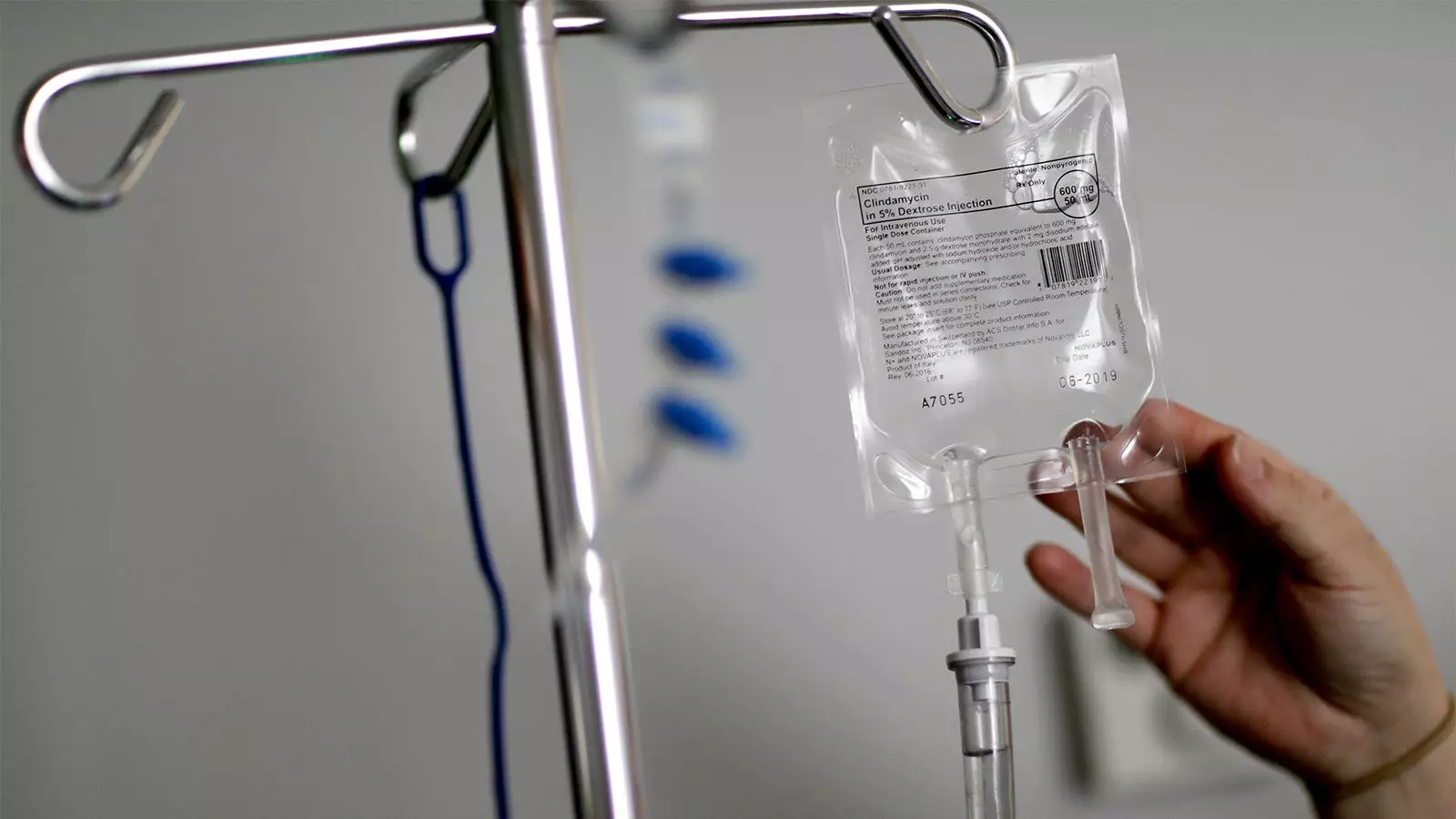As Hurricane Milton looms over the southeastern United States, federal officials are racing against time to safeguard critical medical supplies, particularly intravenous (IV) fluids, which are essential for myriad patient treatments. The impending storm poses a significant threat to various manufacturing facilities, including B. Braun Medical, a key producer of IV bags. The urgency of the situation is amplified by the recent crises stemming from flooding that impacted a Baxter International factory in North Carolina—one that contributes to roughly 60% of the country’s sterile IV fluid supply.
With the stakes so high, the need for decisive action and strategic planning becomes evident. Hospitals across the nation are still grappling with the fallout from the North Carolina flooding, which left them vulnerable due to reduced IV bag inventory just as they face the new peril of Hurricane Milton. The American Hospital Association has voiced concerns about the stability of supply chains under these pressures and has urged the Biden administration to implement broad emergency measures.
In response to the hurricane warning, B. Braun Medical announced that it would be relocating its inventory of IV bags to a safe facility away from its manufacturing plant in Daytona Beach, Florida, which it has temporarily shut down. According to company spokesperson Allison Longenhagen, operations are expected to resume by Friday morning, a decision indicative of the company’s proactive approach to crisis management.
The foresight demonstrated by B. Braun stands in stark contrast to Baxter International, which faced unexpected disruption due to prior natural disasters. Dr. Mike Ganio, who specializes in drug shortages for the American Society of Health-System Pharmacists, emphasized the advantage of moving supplies out of harm’s way before disaster strikes. “B. Braun had advance notice and was able to move all of their supply out of harm’s way,” he noted, reflecting on the importance of preparedness in ensuring the continuity of health services.
The implications of these natural disasters extend far beyond mere supply chain hiccups. With U.S. hospitals utilizing over 2 million IV bags daily for patient hydration and medication delivery, even a minor disruption can lead to severe patient care challenges. As hospitals are compelled to conserve their remaining supplies, patient safety and health outcomes come under threat.
As the situation worsens, federal health authorities, including Secretary of Health Xavier Becerra, have begun exploring various avenues to mitigate the effects of this impending supply crisis. Measures discussed include invoking defense production authorities to mandate that private companies prioritize IV production, which mirrors steps taken during other national emergencies such as the COVID-19 pandemic and baby formula shortages.
Compounding pharmacies may play a crucial role during periods of extreme supply shortages. The FDA has noted that many IV fluids, including saline solutions, were already on their drug shortage list prior to Hurricane Helene, which signifies a long-standing issue. In these acute scenarios, hospitals and specialized pharmacies can create their own formulations to meet patient needs, which becomes an essential lifeline when commercial supply becomes restricted.
While the government is evaluating options for temporary importation of foreign medical supplies and possibly extending expiration dates on existing products, the reliance on compounded medications further emphasizes the critical role that healthcare providers play in ensuring patient care durability, especially during crises.
As the clock ticks down to Hurricane Milton’s landfall, the combined challenges posed by the impending storm and previous disruptions highlight an urgent need for a comprehensive review of national supply chain strategies for medical supplies. The collaborative efforts between federal agencies, manufacturers, and hospital networks can pave the way for more resilient systems capable of withstanding natural and man-made disasters.
This unfolding situation serves as a stark reminder of the fragile healthcare supply chain and the vulnerabilities underlying America’s healthcare infrastructure. As leaders respond to the present crisis, it becomes increasingly vital to consider how to fortify these essential services to protect both healthcare providers and the patients they serve.


Leave a Reply